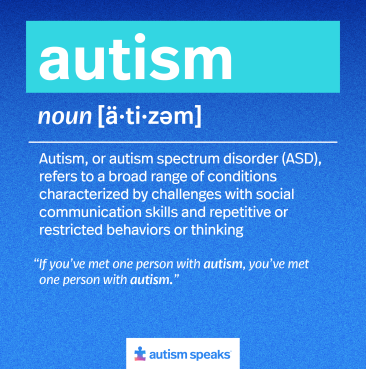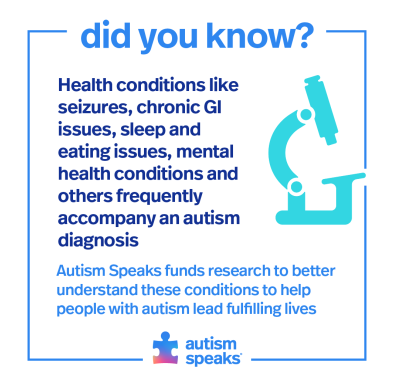For the 2024 Sokoloff Charity Bestball Tournament we have chosen our charity to be Autism Speaks. Autism Speaks Inc. is an American non-profit autism awareness organization and the largest autism research organization in the United States. It sponsors autism research and conducts awareness and outreach activities aimed at families, governments, and the public. Autism Speaks was founded in February 2005 by Bob and Suzanne Wright, a year after their grandson was diagnosed with autism.

Autism, or autism spectrum disorder (ASD), refers to a broad range of conditions characterized by challenges with social skills, repetitive behaviors, speech and nonverbal communication. According to the Centers for Disease Control, autism affects an estimated 1 in 36 children and 1 in 45 adults in the United States today.

Autism looks different for everyone, and each person with autism has a distinct set of strengths and challenges. Some autistic people can speak, while others are nonverbal or minimally verbal and communicate in other ways. Some have intellectual disabilities, while some do not. Some require significant support in their daily lives, while others need less support and, in some cases, live entirely independently.
On average, autism is diagnosed around age 5 in the U.S., with signs appearing by age 2 or 3. Current diagnostic guidelines in the DSM-5-TR break down the ASD diagnosis into three levels based on the amount of support a person might need: level 1, level 2, and level 3.
Many people with autism experience other medical, behavioral or mental health issues that affect their quality of life. Among the most common co-occurring conditions are: Attention-Deficit/Hyperactivity Disorder (ADHD), Anxiety and Depression, Gastrointestinal (GI) Disorders, Seizures and Sleep Disorders.
Anybody can be autistic, regardless of sex, age, race or ethnicity. However, research from the CDC says that boys get diagnosed with autism four times more often than girls. According to the DSM-5-TR, the diagnostic manual for ASD, autism may look different in girls and boys. Girls may have more subtle presentation of symptoms, fewer social and communication challenges, and fewer repetitive behaviors. Their symptoms may go unrecognized by doctors, often leading to underdiagnoses or misdiagnosis. Getting a diagnosis is also harder for autistic adults, who often learn to “mask”, or hide, their autism symptoms.

Autism is a lifelong condition, and an autistic person’s needs, strengths and challenges may change over time. As they transition through life stages, they may need different types of support and accommodations. Early intervention and therapies can make a big difference in a person’s skills and outcomes later in life.